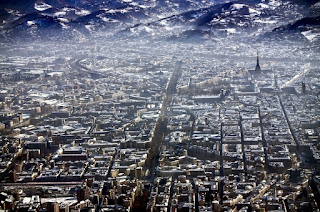The education system in Italy is highly ranked in comparison with other European nations. Study is basic right which is provided to every citizen and the costs are minimal. State grants the aid to make education cheap. As compare to last decade, Italian universities are attracting many international students and this number is increasing year by year. However costs are still much for a student from third world country who is studying here without any scholarship or mean of support.
My main topic here is to describe the studies in Politecnico di Torino, as I'm studying here too. So you may be find it boring, but for the students who are planning to pursue studies in Politecnico di Torino, this post could be helpful.
Politecnico di Torino is an engineering and research institute. Politecnico di Torino entertains international students in all three levels of study; Bachelors, Masters and Doctoral programs. There are also few specializing master courses of one year; 1st level and 2nd level of specializing masters. Politecnico di Torino have 5 campuses in Turin city, one in Alessandria, one in Mandovi, one in Biella and one in Verres. You can find out the the details of these campuses on the university website, which courses are offered, are these research centers only or courses are offered too.
Politecnico di Torino is one of the big universities in Italy, according to number of students enrolled. There are more than 30,000 students, and around 15% international students. International students are enrolled in every level. Large sum of students come from China and Pakistan.
Starting your first year at Polito within deadline is very important. You can't miss your classes. Education here at bachelors level is all theory, very few practical lessons. Like in Pakistan large portion of lessons are done in labs and workshops which give you practical experience. On the other hand if you are coming after last week of September, it will be impossible for you to apply for regional scholarship. So starting your first year of education at the right time is quite important.
First year lessons are done in big halls, where all the engineering students attends their classes. As first year of education for all the disciplines is same. Which gives you adequate knowledge to pursue any stream. So if you change your mind after a year to change your faculty or discipline, you can take any other major you like.
Regarding the exams you have 4 attempts to pass the single exam, 2 attempts are given in the *running semester, 1 in the *not-running semester and finally one in the fall term which lasts for fifteen days in the first half of September. You can attempt all or attempt just one to pass the exam.
All the students have university portals which have all your teaching material and a bridge between you and your teacher. You can use personal student email. WiFi coverage is provided in every corner of university premises. You can stay connected all the time to your studies.
To be continued....
*Running semester = The semester in which lessons of the concerning course are delivered
*Not-Running semester = The semester in which lessons of the concerning course are not delivered

 Exams are stressful,
all of you will agree. You study a lot for months, and in just few hours
you have sum up your knowledge for
Exams are stressful,
all of you will agree. You study a lot for months, and in just few hours
you have sum up your knowledge for 






